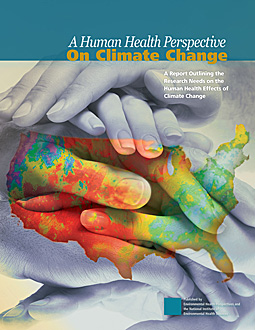Global climate change and its impacts
 Changes in the greenhouse gas concentrations and other drivers alter the global climate and bring about myriad human health consequences. Environmental consequences of climate change, such as extreme heat waves, rising sea-levels, changes in precipitation resulting in flooding and droughts, intense hurricanes, and degraded air quality, affect directly and indirectly the physical, social, and psychological health of humans. For instance, changes in precipitation are creating changes in the availability and quantity of water, as well as resulting in extreme weather events such as intense hurricanes and flooding. Climate change can be a driver of disease migration, as well as exacerbate health effects resulting from the release of toxic air pollutants in vulnerable populations such as children, the elderly, and those with asthma or cardiovascular disease.
Changes in the greenhouse gas concentrations and other drivers alter the global climate and bring about myriad human health consequences. Environmental consequences of climate change, such as extreme heat waves, rising sea-levels, changes in precipitation resulting in flooding and droughts, intense hurricanes, and degraded air quality, affect directly and indirectly the physical, social, and psychological health of humans. For instance, changes in precipitation are creating changes in the availability and quantity of water, as well as resulting in extreme weather events such as intense hurricanes and flooding. Climate change can be a driver of disease migration, as well as exacerbate health effects resulting from the release of toxic air pollutants in vulnerable populations such as children, the elderly, and those with asthma or cardiovascular disease.
Certain adverse health effects can be minimized or avoided with sound mitigation and adaptation strategies. Strategies for mitigating and adapting to climate change can prevent illness and death in people now, while also protecting the environment and health of future generations. Mitigation refers to actions being taken to reduce greenhouse gas emissions and to enhance the sinks that trap or remove carbon from the atmosphere. Adaptation refers to actions being taken to lessen the impact on health and the environment due to changes that cannot be prevented through mitigation. Appropriate mitigation and adaptation strategies will positively affect both climate change and the environment, and thereby positively affect human health. Some adaptation activities will directly improve human health through changes in our public health and health care infrastructure.


|
Climate Change and its Effects on Water Resources: Issues of National and Global Security (NATO Science for Peace and Security Series C: Environmental Security) Book (Springer) |